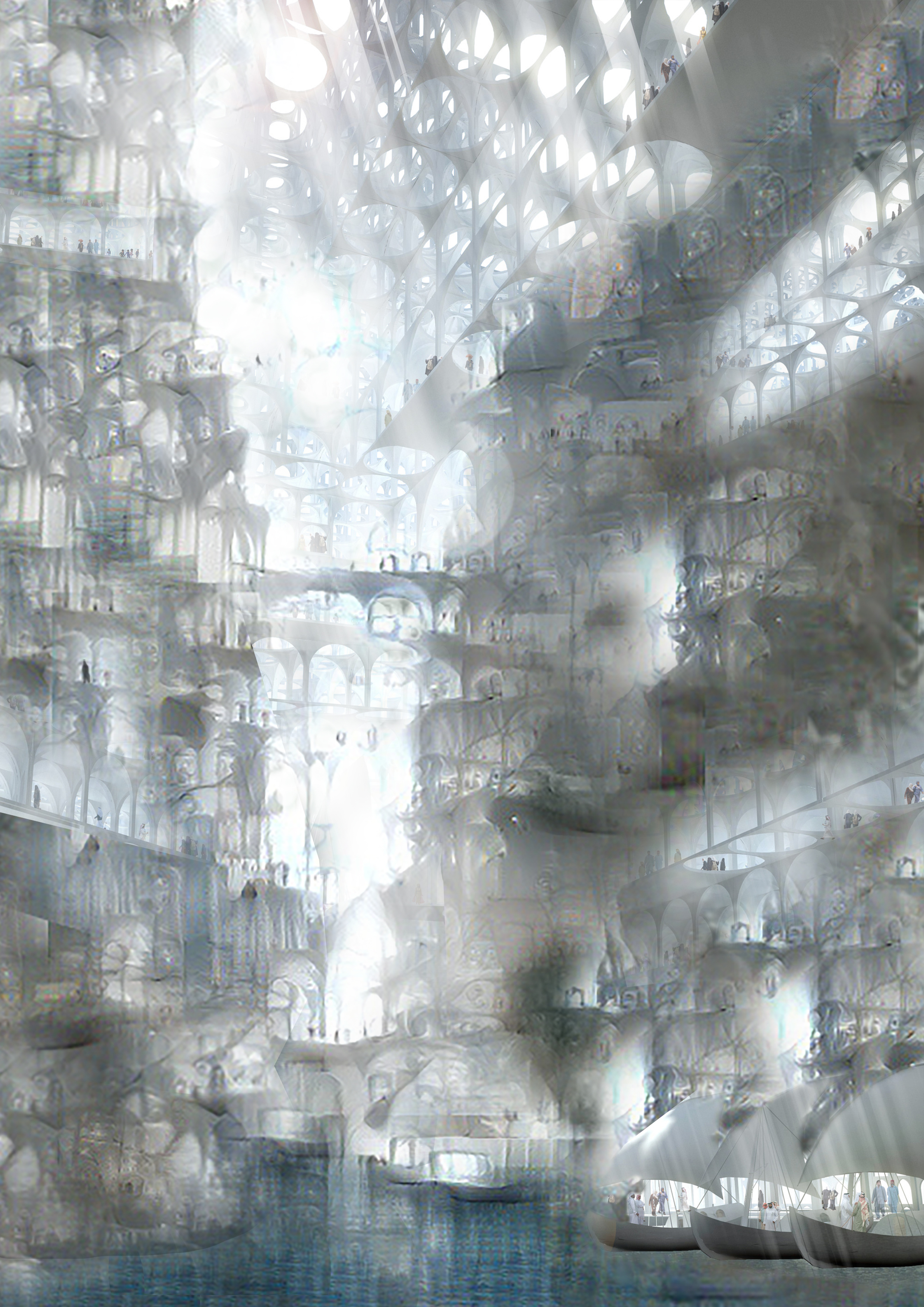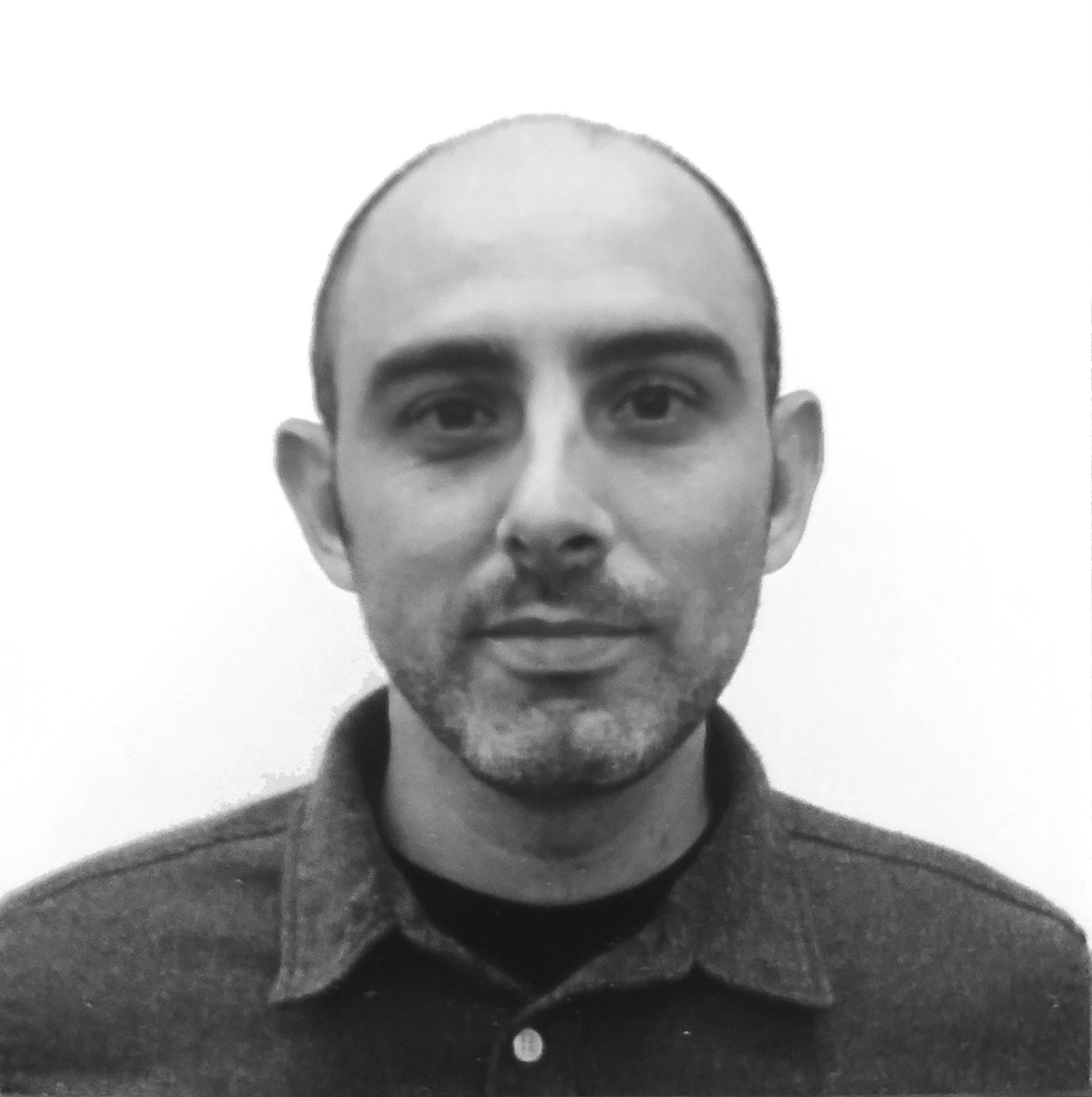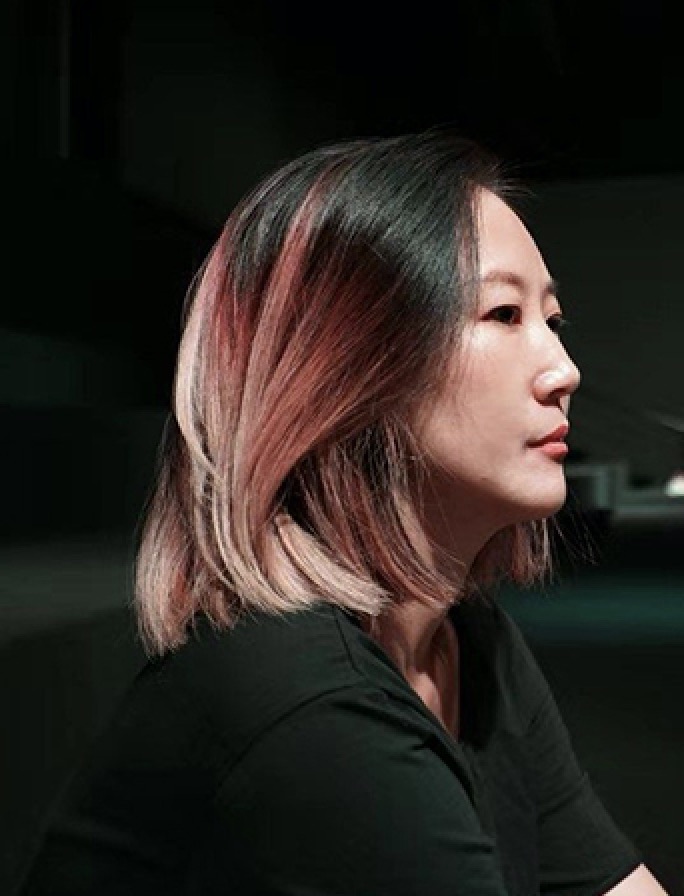Artificial Intelligence | Online Workshop | English | Asia-Pacific
Description:
The process utilizes a machine learning style transfer technology made by the Oxford's Visual Geometry Group. We take the predetermined process and invert it. Thus we use a texture as the base image and an image as a texture, or in other cases we forgo the texture all together and instead opt to only feed the system base images; starving the system for a texture. This forces the system to produce uncanny, surreal, and possibly sublime results, outside the realm of expectation. These results can then be taken by the designer as a prompt, for further speculation and development based on a set of constraints. A more traditional modeling process follows, with the outcomes moving from "not possible to conceive" to a navigable experience.

Key Words:
Style Transfer,Machine Learning Applications,Possible Futures,World Building
Required Skills:
3D Modeling skills, Some lite coding may be required,
Required Software:
Rhino, Grasshopper, Twin motion or Unity, or Enscape
Required Hardware:
A capable computer, Webcam & Microphone,
Maximum number of participating students:
20

Schedule:
Jun 28 - Jul 3
-
Day 1 / Jun 28
-
Day 2 / Jun 30
-
Day 3 / Jul 2
-
Day 4 / Jul 3
Instructors:
-
 R. Spencer Steenblik Wenzhou-Kean University,Assist Dir. PADRI, Professor of Architecture (lecturer)Ralph Spencer Steenblik has built, taught, published, exhibited, and curated globally. His work negotiates vernacular and advanced digital processes through interdisciplinary, sustainable and natural inspiration, to create urban intricacy and inspiring, interactive spaces. He has spoken at Universities around the world such as MIT, Tongji University, Yonsei University and others. His work is published prolifically, including a recent title: "A Manifesto for Xinwu Village", an edited volume outlining the masterplanning effort by he and his students. Deeply engaged in developing the culture at the emerging School of Public Architecture at Kean, and Wenzhou-Kean University, Steenblik has taken on many roles in an effort to strengthen the program. He has previously taught at Pratt Institute, NJIT, CUNY, and has sat as critic on architectural juries throughout the world. His practice, phi architecture (founded in 2004), with clients such as Google, Huayi Space, Venture Anyway, and Fictionist, focuses on designing across scales. His influence, also felt at design offices such as Asymptote Architecture; and he was a founding member of an innovation platform called REACH at Pelli Clarke Pelli*. He holds a masters from SCI-Arc (Southern California Institute of Architecture).
R. Spencer Steenblik Wenzhou-Kean University,Assist Dir. PADRI, Professor of Architecture (lecturer)Ralph Spencer Steenblik has built, taught, published, exhibited, and curated globally. His work negotiates vernacular and advanced digital processes through interdisciplinary, sustainable and natural inspiration, to create urban intricacy and inspiring, interactive spaces. He has spoken at Universities around the world such as MIT, Tongji University, Yonsei University and others. His work is published prolifically, including a recent title: "A Manifesto for Xinwu Village", an edited volume outlining the masterplanning effort by he and his students. Deeply engaged in developing the culture at the emerging School of Public Architecture at Kean, and Wenzhou-Kean University, Steenblik has taken on many roles in an effort to strengthen the program. He has previously taught at Pratt Institute, NJIT, CUNY, and has sat as critic on architectural juries throughout the world. His practice, phi architecture (founded in 2004), with clients such as Google, Huayi Space, Venture Anyway, and Fictionist, focuses on designing across scales. His influence, also felt at design offices such as Asymptote Architecture; and he was a founding member of an innovation platform called REACH at Pelli Clarke Pelli*. He holds a masters from SCI-Arc (Southern California Institute of Architecture). -
 Xin Wang architecture,Vice dean of YAHA architecture schoolMs. Xin Wang research interests lies in algorithmic design. Besides practice, she has been continuously carrying out research projects to think and push the boundary of space design. Her researches are among generative form, fabrication, data illustrustration and art form. Her works were in many international design exhibitions, such as BIDT in the Na- tional Museum of China and so on.Recent years, she has been researching in spatial data field, re-examine urban issues through data layers.
Xin Wang architecture,Vice dean of YAHA architecture schoolMs. Xin Wang research interests lies in algorithmic design. Besides practice, she has been continuously carrying out research projects to think and push the boundary of space design. Her researches are among generative form, fabrication, data illustrustration and art form. Her works were in many international design exhibitions, such as BIDT in the Na- tional Museum of China and so on.Recent years, she has been researching in spatial data field, re-examine urban issues through data layers. -
Juan Carlos Dall’Asta ,